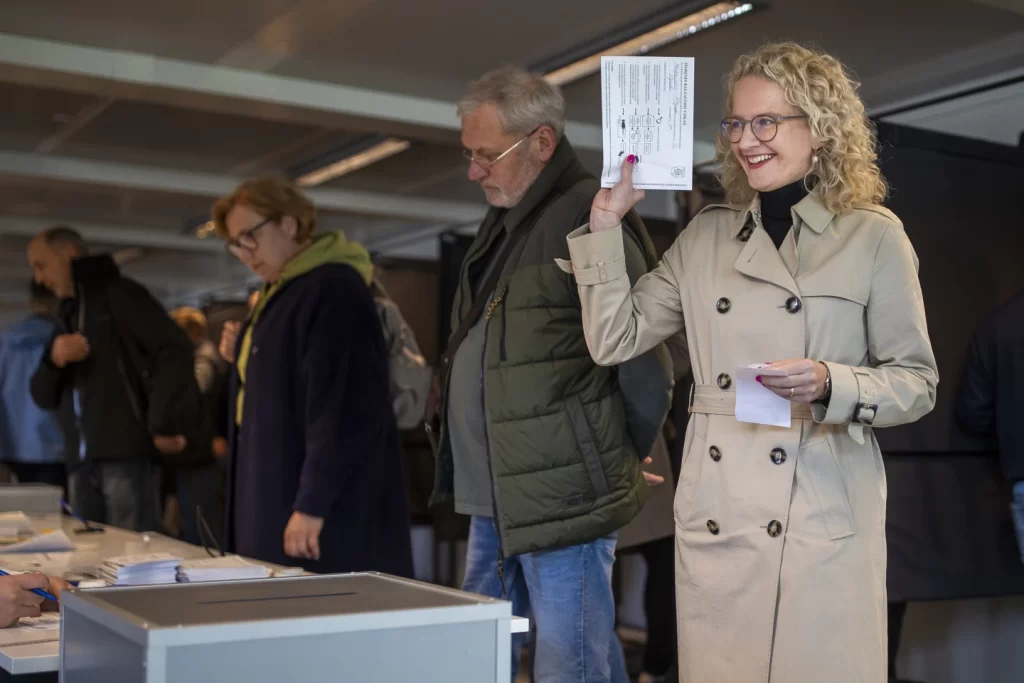Lithuania prepares for a pivotal general election on Sunday, with voters seemingly inclined towards change despite the country’s robust economic performance. The center-right coalition led by Prime Minister Ingrida Šimonytė faces a strong challenge from the opposition Social Democrats and smaller center-left parties.

Despite Lithuania boasting double-digit personal income growth and one of the lowest inflation rates in the European Union, public sentiment appears to favor a shift in leadership. Nerijus Mačiulis, an economist at Swedbank, notes that while the economic situation is significantly better than during the 2008-2010 financial crisis, voters rarely attribute personal wealth gains to political leadership.
Political analyst Rima Urbonaitė from Vilnius’ Mykolas Romeris University highlights widespread disappointment and discontent among voters, stemming from numerous crises and shocks that economic factors have not offset.

Prime Minister Šimonytė has faced criticism over her government’s handling of the COVID-19 pandemic, with complaints about insufficient support for companies during lockdowns and inadequate access to healthcare services. Additionally, her administration’s approach to the influx of migrants from neighboring Belarus has drawn criticism.
A recent Vilmorus poll shows the Social Democratic Party, led by Vilija Blinkevičiūtė, leading with 18% of the vote, while Šimonytė’s Homeland Union trails at 9%. The newly registered right-wing party Nemuno Aušra, led by controversial politician Remigijus Žemaitaitis, polls at 12%.

The election comes at a time of heightened regional tensions due to Russia’s war in Ukraine, though analysts suggest a potential shift to the left would not significantly alter Lithuania’s foreign policy stance. President Gitanas Nauseda, who won re-election earlier this year, plays a crucial role in determining the country’s foreign policy direction.
Approximately 2.4 million Lithuanians are eligible to vote for 141 members of parliament in a two-round system. The first round on Sunday will elect 70 lawmakers through party lists and single-mandate constituencies, with a runoff scheduled for October 27.

As Lithuania approaches this crucial vote, the outcome could signal a significant shift in the country’s political landscape, reflecting voters’ desire for change despite economic indicators suggesting stability and growth.



